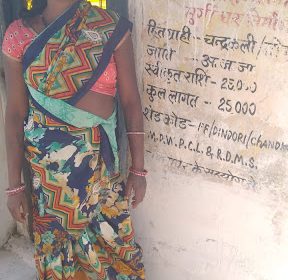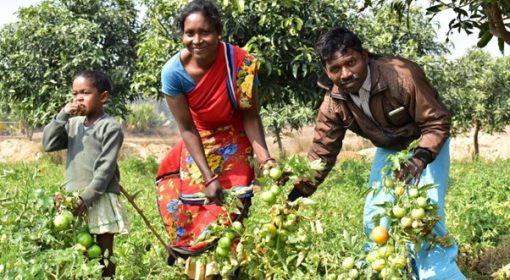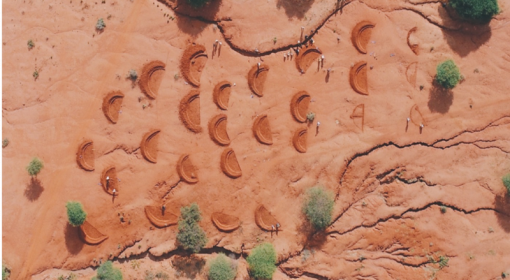by Anushree Mitra (MetaMeta)
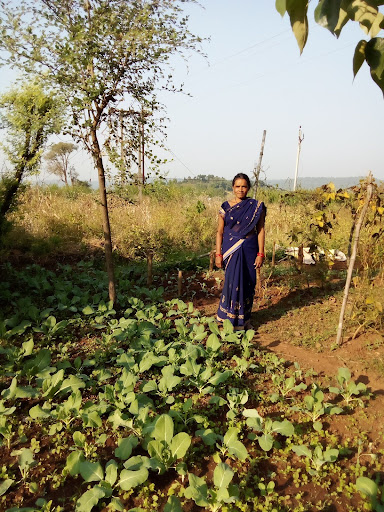
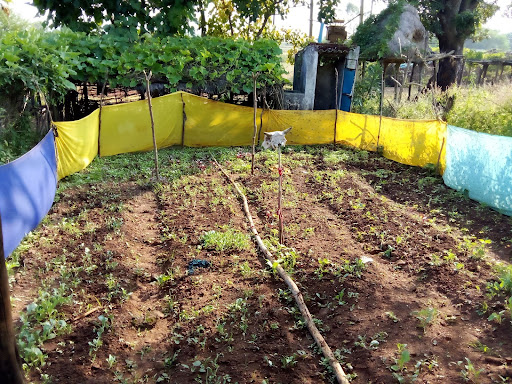
Shakun Didi is a resident of Jhanki village in Dindori district of Madhya Pradesh, India. She had started taking the initiative of nurseries practiced under the principles of regenerative agriculture with the help of the Indian Organisation PRADAN (Professional Assistance for Development Action). In Jhanki, they had to suffer quite a lot of losses when it came to agriculture be it due to the degrading quality of soil, late rains, quality of seeds, etc. After exposure visits to other areas, Shakun Didi took an interest particularly towards nurseries. It has been 4 years since she’s been doing nurseries not only for herself but for the other farmers in the village as well. She prepares the nursery beds by using Matka Khaad (organic fertilizer) and sprayed waste decomposer (organic fertiliser. Used as a substitute for Urea during ploughing of the field). “The results are amazing after using a waste decomposer! The plants are so green and healthy,” says Shakun Didi. These inputs are cheaper as well compared to its inorganic counterpart. “Inorganic inputs degrade the soil. It becomes hard. Organic inputs keep the soil alive.” “I know one day the farmers will stop using inorganic inputs completely. Our lands are becoming barren because of them. Our soil cannot retain its moisture.”
She has seen a significant difference after doing nurseries. After 20-21 days we transfer the plants from the nurseries to the fields. She grows cauliflower, tomato, and cabbage in her nursery. The plants become healthy in this process. After she started doing nurseries, she did not have loss in seeds. The number of seeds she plants, more or less all of them germinate. “Initially we used to practice broadcasting methods for seeds. If they grow, that’s fine. Not a lot of maintenance used to go behind it. Now after nurseries, we do not need a lot of seeds and the number of seeds we plant, they all germinate.”
This way the cost of labour as well as the money of seeds, pesticides, fertilizers everything gets covered. And they also have profits provided proper maintenance properly. “I started with this because I can take care of the plants properly, put the fertilizers, pesticides etc on time, and maintain it properly. Not only do I do it for myself, but if others are in need of plants, I provide it to them as well and get money out of that.” She had opened a central nursery. In the monsoons the earning from that was 16000 INR and for Rabi it was 7000 INR.
“My family members are very supportive. No matter how much work is there at home. They never stop me from doing my work. I am working for farmers, to increase their income. Why should anyone stop me for that?”
Today she feels very happy and proud that other farmers are profiting from it. “The problems that the farmers have, the fact that I can give solutions for their problems, I am working for them, their conditions are getting better, I feel very happy to see that. I feel very happy to work like this. I feel great.”
This time the villagers didn’t have to take loans. They sold their vegetables and got their money whenever they needed it.
“I want to work more for others than myself. I have more aspirations for my fellow villagers than for me. I want that today just like I know, I can do it myself; others also do the same. They should know how to maintain the nurseries themselves, when to put fertilizers, when to put the other inputs, and how to maintain; they should learn everything. Even if I am not there someday, they shouldn’t need me.”
Produced by:

